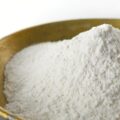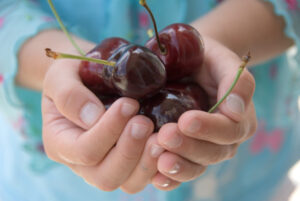Summerfields
A while ago while perusing the cooking section of the library we found some interesting books about historical recipes. Some of these recipes went right back to Biblical times! We decided to attempt some of the recipes and have ourselves a true taste of history. To round out our Biblical experimentation, we got out some Jewish cookbooks too. One of the books admitted that it was mostly speculation (it was a really, really long time ago), but we thought it would be fun to try the dishes anyway. Our first recipe was Megadarra which is burgul and lentil dish. We had to make this because supposedly it was the dish Esau gave up his birthright for. How could we pass up a dish worth giving away your inheritance for? We followed the recipe in the book and combined burgul wheat, red lentils, onions and olive oil. It was definitely hearty but not as tasty as we expected. We were left thinking; “You would have to be pretty hungry to give up your birthright for this!” We tried adding some natural yoghurt (a serving suggestion) and it made all the difference. The tang of the yoghurt and nuttiness of the burgul wheat made it quite moreish. We have since found many varieties of this dish online using different lentils and we are keen to try these more modern versions as they sound very tasty. One of the books suggested that sometimes ‘honey’ as referred to in the bible was actually fruit syrups like date syrup. In the Ancient World there were very few natural sweet things. Honey is definitely one candidate but, for many people, dates would have been the sweetest thing they ever ate. Date syrup can easily be made from dried dates. We placed the dates in a pot and covered them with water and boiled it away for about thirty minutes, then we blended the dates and strained it through some cheese cloth. The resulting syrup
was thick and dark and very sweet. It also tasted surprisingly honey like. Date syrup[http://www.edibleplanet.co.nz/durra-excellent-date-syrup.html] is currently enjoying a resurgence of popularity in recipes instead of sugar. We also couldn’t pass up the opportunity to have zaatar on pita bread since zaatar is also a Palestinian spice blend. We tried matzo – which is the Jewish unleavened bread made from flour and water, cooked then dried out so it is like a cracker. To add to the feasting we also had olives, figs and hummus. It was a lot of fun cooking up the recipes, unsure how they would taste. With the left over matzo the next night, we made a chicken dish similar to this one[http://busycooks.about.com/od/chickenbreastrecipes/r/matzochicken.htm] which was very tasty too. Our experiments may have been of dubious historical accuracy, but we had a huge amount of fun making them. Next stop, Saxon England? Ancient Rome?
[homepage] [/homepage
[/homepage





Good luck what an interesting experiment!
The historical English foods have never appealed much – sweet and savoury, highly spiced, meat centric…but it could be fun.